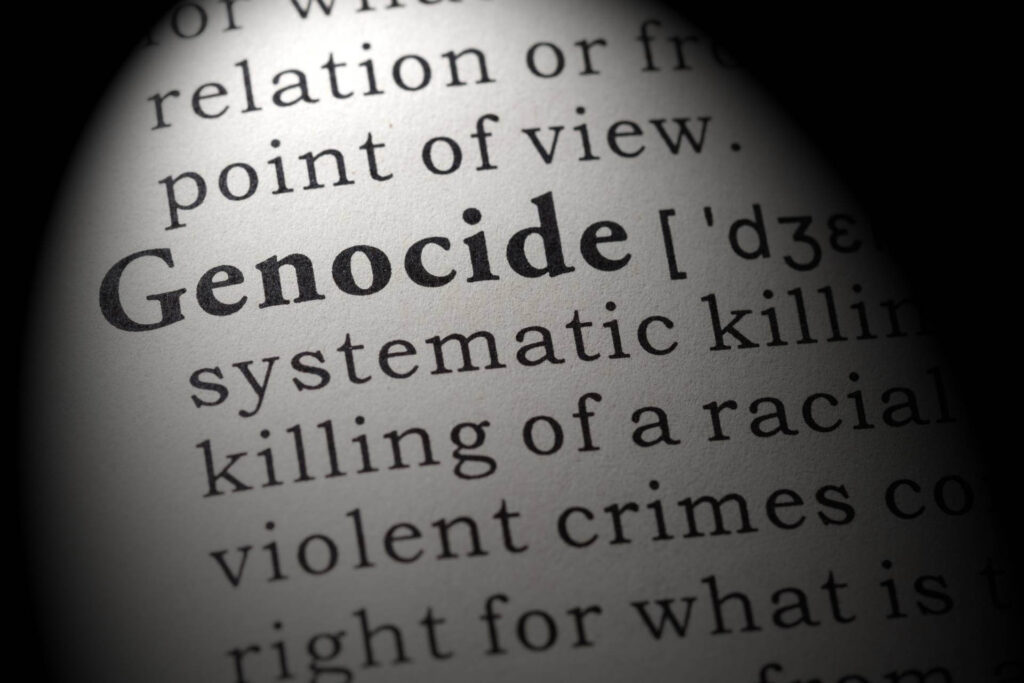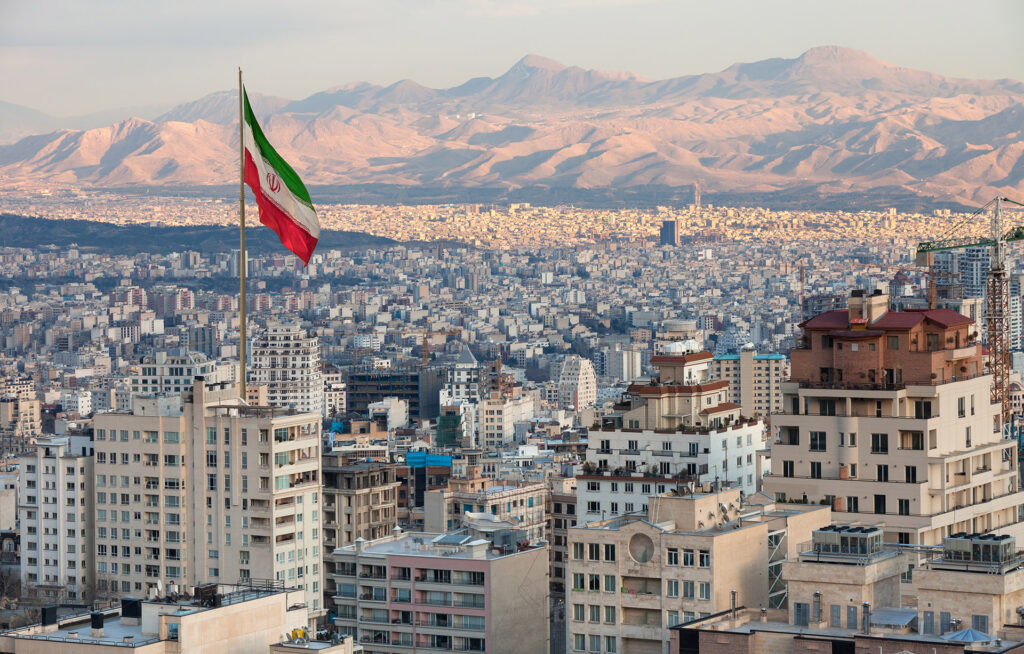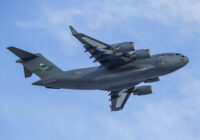While Secretary of State Anthony Blinken has been frantically shuttling around the Middle East trying to stop the Israeli conflict in Gaza from exploding into a regional war, the United States has also sent two aircraft carrier strike groups, a Marine Expeditionary Unit and 1,200 extra troops to the Middle East as a “deterrent.” In plain language, the US is threatening to attack any forces that come to the defense of the Palestinians from other countries in the region, reassuring Israel that it can keep killing with impunity in Gaza.
But if Israel persists in this genocidal war, US threats may be impotent to prevent others from intervening. From Lebanon to Syria, Yemen, Iraq and Iran, the possibilities of the conflict spreading are enormous. Even Algeria says it is ready to fight for a free Palestine, based on a unanimous vote in its parliament on November 1.
Related Reading
The US is facing a credibility crisis in the Middle East
Middle Eastern governments and their people already see the United States as a party to Israel’s massacre in Gaza. So any direct US military action will be seen as an escalation on the side of Israel. It would be more likely to provoke further escalation than to deter it.
The US already faces this predicament in Iraq. Despite years of Iraqi demands for the removal of US forces, at least 2,500 American troops remain at Al-Asad Airbase in western Anbar province, Al-Harir Airbase, north of Erbil in Iraqi Kurdistan, and another small base at the airport in Erbil. There are also “several hundred” NATO troops, including Americans, advising Iraqi forces in NATO Mission Iraq, based near Baghdad.
For many years, US forces in Iraq have been mired in a low-grade war against the Popular Mobilization Forces (PMF) that Iraq formed to fight ISIS, mainly from Shia militias. Despite their links to Iran, the armed groups Kata’ib Hezbollah, Asa’ib Ahl al-Haq and other PMFs have often ignored Iranian calls to de-escalate attacks on US forces. These Iraqi groups do not respect Iran Quds Force leader General Esmail Qaani as highly as they did General Soleimani, so Soleimani’s assassination by the United States in 2020 has further reduced Iran’s ability to restrain the militias in Iraq.
Related Reading
After a year-long truce between US and Iraqi forces, the Israeli war on Gaza has triggered a new escalation of this conflict in both Iraq and Syria. Some militias rebranded themselves as the Islamic Resistance in Iraq and began attacking US bases on October 17. After 32 attacks on US bases in Iraq, 34 more in Syria and three US airstrikes in Syria, US forces conducted airstrikes on November 21 against two Kata’ib Hezbollah bases in Iraq, one in Anbar province and one in Jurf Al-Nasr, south of Baghdad, killing at least nine militiamen.
The US airstrikes prompted a furious response from the Iraqi government spokesman Bassam al-Awadi. “We vehemently condemn the attack on Jurf Al-Nasr, executed without the knowledge of government agencies,” al-Awadi said. “This action is a blatant violation of sovereignty and an attempt to destabilize the security situation … The recent incident represents a clear violation of the coalition’s mission to combat Daesh [ISIS] on Iraqi soil. We call on all parties to avoid unilateral actions and to respect Iraq’s sovereignty.”
As the Iraqi government feared, the Islamic Resistance in Iraq responded to the US airstrikes with two attacks on Al-Harir airbase on November 22 and several more on November 23. They attacked Al-Asad airbase with several drones and launched another drone attack on the US base at Erbil airport. Their Syrian allies attacked two US bases across the border in northeastern Syria.
Short of a ceasefire in Gaza or a full US withdrawal from Iraq and Syria, there is no decisive action the US can take that would put a stop to these attacks. So, the level of violence in Iraq and Syria is likely to keep rising as long as the war on Gaza continues.
Regional actors in Yemen, Turkey, Lebanon and Iran contemplate intervening in Gaza
Another formidable and experienced military force opposing Israel and the United States is the Houthi army in Yemen. On November 14, Abdul-Malek al-Houthi, the leader of the Houthi government in Yemen, asked neighboring countries to open a corridor through their territory for his army to go and fight Israel in Gaza.
The Houthi Deputy Information Secretary Nasreddin Amer told Newsweek that, if they had a way to enter Palestine, they would not hesitate to join the fight against Israel, ”We have fighters numbering hundreds of thousands who are brave, tough, trained and experienced in fighting,” Amer said. “They have a very strong belief, and their dream in life is to fight the Zionists and the Americans.”
Transporting hundreds of thousands of Yemeni soldiers to fight in Gaza would be nearly impossible unless Saudi Arabia opened the way. That seems highly unlikely, but Iran or another ally could help to transport a smaller number by air or sea to join the fight.
The Houthis have been waging an asymmetric war against Saudi-led invaders and the internationally recognized Yemeni government for many years, and they have developed weapons and tactics that they could bring to bear against Israel. Soon after al-Houthi’s statement, Houthi forces in the Red Sea boarded a ship owned, via shell companies, by Israeli billionaire Abraham Ungar. The ship, which was on its way from Istanbul to India, was detained in a Yemeni port.
The Houthis have also launched a series of drones and missiles towards Israel. While many Western politicians and journalists try to portray the Houthis as simply puppets of Iran, the Houthis are actually an independent, unpredictable force that other actors in the region cannot control.
Even NATO member Turkey is finding it difficult to remain a bystander, given the widespread public support for Palestine. Turkish President Recep Tayyip Erdoğan was among the first international leaders to speak out strongly against the Israeli war on Gaza, explicitly calling it a massacre and saying that it amounted to genocide.
Turkish civil society groups are spearheading a campaign to send humanitarian aid to Gaza on cargo ships, braving a possible confrontation like the one that occurred in 2010 when the Israelis attacked the Freedom Flotilla, killing 10 people aboard the Mavi Marmara.
On the Lebanese border, Hezbollah and Israel have conducted daily exchanges of fire since October 7, killing 107 combatants and 24 civilians in Lebanon and 9 soldiers and 4 civilians in Israel. Some 55,000 Lebanese civilians and 65,000 Israelis have been displaced from the border area. On November 11, Israeli defense minister Yoav Gallant warned, “What we’re doing in Gaza, we can also do in Beirut.”
How will Hezbollah react as Israel resumes its brutal massacre in Gaza after the brief pause or if Israel expands the massacre to the West Bank, where it has already killed at least 237 more Palestinians since October 7?
In a speech on November 3, Hezbollah leader Hassan Nasrallah held back from declaring a new war on Israel, but warned that “all options are on the table” if Israel does not end its war on Gaza.
On November 23, Iranian Foreign Minister Hossein Amirabdollahian said, “If Israel’s war crimes and genocide continue, a tougher and more complicated scenario of the resistance will be implemented.”
Amirabdollahian had already warned, on October 16, that “the leaders of the resistance will not allow the Zionist regime to do whatever it wants in Gaza and then go to other fronts of the resistance.” In other words, if Iran and its allies believe that Israel really intends to continue its war on Gaza until it has removed Hamas from power, and then turn its war machine loose on Lebanon or its other neighbors, they would prefer to fight a wider war now, forcing Israel to fight the Palestinians, Hezbollah and their allies at the same time, rather than waiting for Israel to attack them one by one.
The US is ignoring the warning signs
Tragically, the White House is not listening. On November 24, the day after Amirabdollahian’s speech, US President Joe Biden continued to back Israel’s vow to resume the destruction of Gaza after its “humanitarian pause,” saying that attempting to eliminate Hamas is “a legitimate objective.” On December 7, he blamed Hamas for the breakdown of the pause.
America’s unconditional support for Israel and endless supply of weapons have succeeded only in turning Israel into an out-of-control, genocidal, destabilizing force at the heart of a fragile region already shattered and traumatized by decades of US warmaking. The result is a country that refuses to recognize its own borders or those of its neighbors and rejects any and all limits on its territorial ambitions and war crimes.
If Israel’s actions lead to a wider war, the US will find itself with few allies ready to jump into the fray. Even if a regional conflict is avoided, the US support for Israel has already created tremendous damage to its reputation in the region and beyond, and direct American involvement in the war would leave it more isolated and impotent than its previous misadventures in Vietnam, Afghanistan and Iraq did.
The US can still avoid this fate by insisting on an immediate and permanent ceasefire and the withdrawal of Israeli forces from Gaza. If Israel will not agree to that, the US must back up this position with an immediate suspension of arms deliveries, military aid, Israeli access to US weapons stockpiles in Israel and diplomatic support for Israel’s war on Palestine.
The priority of US officials must be to stop Israel’s massacre, avoid a regional war and get out of the way so that the UN and other nations can help negotiate a real solution to the occupation of Palestine.
[Anton Schauble edited this piece.]
The views expressed in this article are the author’s own and do not necessarily reflect Fair Observer’s editorial policy.
Support Fair Observer
We rely on your support for our independence, diversity and quality.
For more than 10 years, Fair Observer has been free, fair and independent. No billionaire owns us, no advertisers control us. We are a reader-supported nonprofit. Unlike many other publications, we keep our content free for readers regardless of where they live or whether they can afford to pay. We have no paywalls and no ads.
In the post-truth era of fake news, echo chambers and filter bubbles, we publish a plurality of perspectives from around the world. Anyone can publish with us, but everyone goes through a rigorous editorial process. So, you get fact-checked, well-reasoned content instead of noise.
We publish 2,500+ voices from 90+ countries. We also conduct education and training programs
on subjects ranging from digital media and journalism to writing and critical thinking. This
doesn’t come cheap. Servers, editors, trainers and web developers cost
money.
Please consider supporting us on a regular basis as a recurring donor or a
sustaining member.
Will you support FO’s journalism?
We rely on your support for our independence, diversity and quality.










Comment